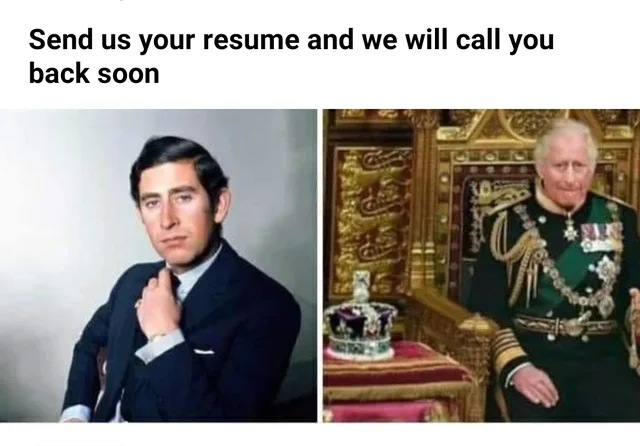
You apply.
You go through a phone screen.
You go through three rounds of interviews.
And you still wait.
And wait.
And sometimes, you get ghosted, and the recruiter or hiring manager never gets back to you.
And sometimes they do. Sometimes even with an offer! But why does it take so long? You’d think that companies would be anxious to fill positions and not drag the process out, but they often do drag it out–especially in higher-level positions. Here are some (but not all!) reasons why it takes forever from application to decision.
The vacancy isn’t secure. Just because Jane quit doesn’t mean the company will end up hiring someone to replace Jane. Terminations–voluntary and involuntary–often give companies a chance to adjust headcount and redistribute resources. So, while the manager may immediately send a job description to a recruiter, the negotiating behind the scenes may not be over.
Job descriptions change mid-hiring process. Yes, they do. And it’s not just fighting among departments for headcount. Often, job descriptions start as a description of what the last person did. As hiring managers interview, they may change their minds about what’s important.
Scheduling is difficult. The stupid thing about hiring is that when a manager has a vacancy, everyone in the department must juggle the vacancy’s work, making scheduling even more difficult. Add into that, many companies want more than just hiring managers to interview candidates, so finding times when everyone can conduct interviews can be a challenge. And since you’re not the only candidate, they have to arrange multiple times when everyone is available. It can make the process take a long time, even if you’ve already interviewed.
Hiring managers want someone perfect. All recruiters can talk about the unicorn problem. That is, a hiring manager wants someone so specific that no one else will do. And so, they hem and haw and sometimes (read: often) just reject all candidates and start over. This is where you’re likely to get ghosted because the recruiter doesn’t want to say no, in case the hiring manager wakes up and realizes the purple unicorn doesn’t exist.
No one can make up their minds. As a general rule, if you are honest in your resume and make it through to the interview, you’re qualified to do the job. (Or at least you should be–so often I hear of people being rejected for things like “you don’t have the right degree” after three rounds of interviews. That’s so dumb.) Hiring managers can often find themselves unable to make a decision about the three top candidates. And so they think, “well, just one more round of interviews.”
Candidates dropout. Candidates don’t put up with as much as they used to. And sometimes, hiring managers hem and haw and top people drop out and instead of just choosing among the people who are still in the running, they want to interview more people! They often become enamoured with the person who just dropped out and now want to find that person’s clone. This never ends well.
Filling this position is a low priority. It’s the most important thing to you, but it’s probably not to the recruiter or the hiring manager.
Things happen. Maybe there are layoffs coming and so (rightly) they don’t want to make an offer only to yank it back. Or a senior leader quits and so they don’t want to bring anyone new onboard before that position is filled. Or there’s a budget thing going on. Or a promotion thing. Or the hiring manager quits. Or the hiring manager wants to quit but hasn’t said anything and so stretches out the process. Or maybe someone goes on maternity leave. Or, or, or…it’s all possible.
In other words, it’s normal. It takes forever. And it’s nor your fault.

I agree with each of your points. I’ve been on both sides – hiring and applying – and it’s frustrating for each POV.
I would add attention to equity and inclusion to this list. My organization has reworked its hiring process for greater intentionality about DEI. Slowing a process down is often a good thing and overall I really appreciate our approach. At the same time, I wonder if the extended process sometimes disadvantages precisely those we are trying to help.
Thank you for saying it’s not our fault. *cries*
I am convinced at this point that it isn’t me, it’s them. I have been through boatloads of interviews in the last *cough* years of unemployment. In that time, I’ve freelanced, indie published three books, and earned a project management certification—with that last one, I’m actually MORE qualified than I was when I started.
Companies need to stop looking for a unicorn and MAKE ONE.
I just want to say that’s the best illustration ever.
Looking for Unicorns, what a statement, but the main reason is the inability to make a decision. That doesn’t excuse the process of not giving the applicant any feedback on the process–a simple we are still evaluating candidates, will give the applicant permission to either continue their search or wait. They are using a computer program anyway to process the applicants and candidates and that same program can send out the form responses. Technology evaluation has come a long way from just the human evaluation process.
Excellent overview. I am coaching a number of young students looking for their first corporate role. Not understanding the hiring process as you have so clearly elaborated causes them to think that they are not good enough. Definitely handing out your blog. Thank you.
A word of advice. In this job market, if an employer doesn’t get back to you within a week, move on and stop returning their emails and phone calls. There are too many other good opportunities out there to bother making a big investment in an employer by returning tardy emails or phone calls. You should also alert your network so they don’t waste their time.